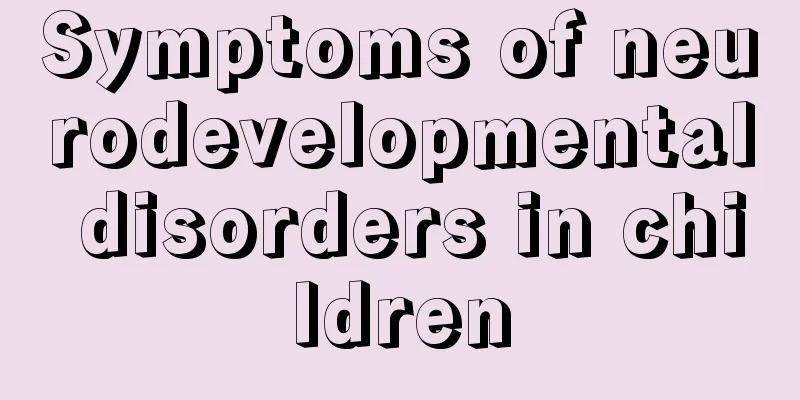How to treat congenital heart disease?

|
Indeed, in the TV dramas I watched when I was a child, whether Japanese or Korean, there were often protagonists with heart disease. This kind of disease shown in TV dramas also exists in real life and is very widespread. The chance of getting the disease has increased a lot. Congenital means that the disease is present from birth. For patients with congenital diseases, this is a painful disease from the very beginning. We are very sad about this, but we will provide some treatments next. Congenital cardiovascular disease is the most common type of congenital malformation. Mild cases have no symptoms and are discovered during physical examination. Severe cases may have difficulty breathing after activity, cyanosis, syncope, etc. Older children may have growth retardation. Neonatal heart failure is considered an emergency and is usually caused by a more severe heart defect. Its clinical manifestations are due to congestion of the pulmonary circulation and systemic circulation and reduced cardiac output. The treatment of congenital heart disease generally depends on the type and severity of the deformity, the timing of surgery for those who are suitable for surgical correction, the preoperative cardiac function status, and the presence or absence of complications.Departments: Cardiovascular Medicine, Cardiovascular Surgery, Internal Medicine, Surgery Treatment: Drug therapy, supportive care Nutritional conditioning: 1. The diet should mainly consist of normal food, semi-liquid high-protein, low-salt, high-fiber diet, small meals, avoid overeating, and limit tobacco, alcohol, tea, coffee and stimulating foods. 2. Attention should be paid to the mother's health care during pregnancy, especially in the early stages of pregnancy, such as actively preventing viral infections such as rubella, influenza, and mumps. Avoid exposure to radiation and some harmful substances. 3. Pay attention to a balanced diet and avoid nutritional deficiencies. The indoor air needs to be circulated. In winter, windows should be opened regularly to enhance air convection. Children with persistent cyanosis should avoid high indoor temperatures, which may cause sweating and dehydration. 4. Provide a high-protein, high-calorie, vitamin-rich diet to enhance physical fitness. Avoid eating too much. Children with cyanotic heart disease must be given enough water to avoid dehydration and thrombosis. 5. Avoid the child from getting emotionally agitated, try not to let the child cry, and reduce unnecessary stimulation to avoid increasing the burden on the heart. 6. Keep bowel movements smooth. Children with cyanotic bowel movements should be careful not to strain too much so as not to increase the burden on the heart. If you haven't had a bowel movement for two days, you can use a suppository to relieve the bowel movement. Pregnant women must be careful not to sit in places with strong magnetic fields for too long during pregnancy, because the baby's organs are not fully developed in the early stages. Also, try not to get close to pets as they may be infected with bacteria. Also, be careful not to catch a cold or come into contact with harmful substances. Also, take in nutrition in time to ensure the normal development of the baby. |
<<: How to treat pediatric hip synovitis?
>>: Treatment of synovitis of the knee in children
Recommend
How to solve the problem of baby kicking the quilt at night
The problem of babies kicking off the quilt at ni...
Can babies sleep on buckwheat pillows?
The baby's bones are not fully developed yet,...
Why do children get urinary tract infections?
Children's physical resistance is far less th...
Treatment of crooked mouth in newborns
Nowadays, examples of newborns with crooked mouth...
The harm of low-grade fever in babies
The phenomenon of a baby's persistent low-gra...
What causes acrodermatitis in children?
Sometimes, some small red spots appear on childre...
The child coughs with a hollow sound
The growth of children is what parents care about...
What to do if children have allergic itching? Common treatment methods
If a child has allergies, the mother should be ca...
What to do if the newborn baby has rashes
If there is a problem with the newborn's body...
Things to note when a 5-year-old child loses teeth
The age of 5 is the time when children change the...
What to do if you have hemangioma in children?
Hemangioma is a common clinical disease. It is a ...
What to do if children have a fever and cold hands and feet
Children's fever is a rather tricky problem, ...
How many months can babies see?
When a baby is born, his eyes are normal, but his...
What is the child missing if he doesn't have long hair?
After the baby is born, the baby's hair is ve...
Bifidobacterium for neonatal jaundice
Neonatal jaundice is relatively common and is mai...









